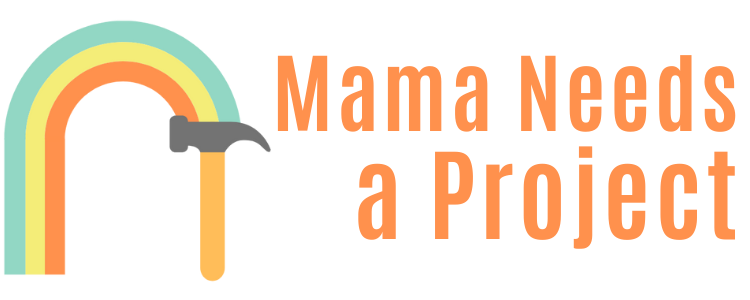Barrel Grip Jigsaw vs Top Handle (Which is Better?)
Jigsaws are powerful and important cutting tools often used in carpentry, woodworking, flooring, and DIY projects. But there are several different types and styles of jigsaws with different features, so it’s important to choose the right one for your needs.
Aside from choosing between a corded or cordless jigsaw, deciding between a barrel grip jigsaw and a top handle one is crucial. Each style of jigsaw has different features, pros, and cons, and it’s important to consider each one when making your decision.
In this guide, I’ll explore the key differences between a barrel grip jigsaw vs top handle model and which is best for your project. Let’s dig in!
- The main difference between a barrel grip jigsaw and top handle model is the grip, handling, and control of your jigsaw.
- Barrel grip jigsaws offer more control and better handling because of their lower center of gravity and position closer to your workpiece.
Barrel Grip Jigsaw Vs. Top Handle: What’s the Difference?
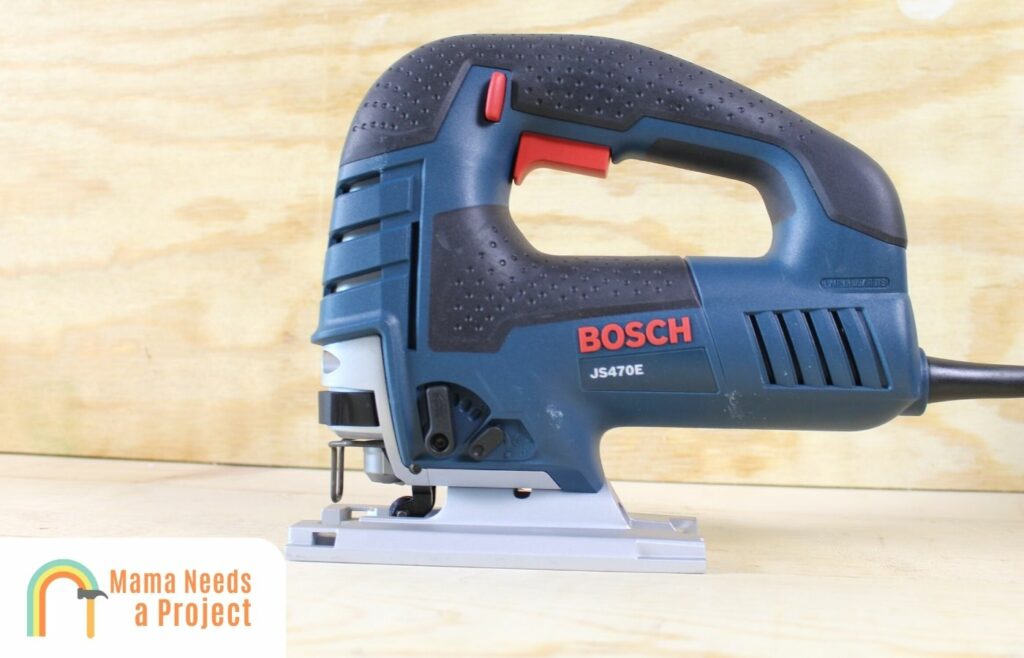
Ergonomics
Although there isn’t a huge difference between the ergonomics of a barrel grip jigsaw vs. top handle jigsaw, top handle jigsaws are slightly easier to hold in my opinion. They have a unique, D-shaped grip that makes them easy to grip with one hand while having the other free to adjust the speed control or maneuver wood.
On the downside, however, your hand is more likely to get tired using a top-handle jigsaw. Because you’re relying on a single hand and need to keep a tight grip and light pressure on the tool, your hand is prone to fatigue, so you’ll have to switch hands or take breaks on long projects.
Handling and Control
When it comes to handling and control, barrel grip jigsaws are often superior to top-handle models. Because of how barrel grips are designed, they have a slightly lower profile than top handles, making it easier to guide them.
Additionally, top handle jigsaws have the blade directly below the trigger and sit slightly higher than barrel grips. Therefore, you need to use a little more pressure when guiding a top-handle model, making it slightly more difficult to control and increasing the likelihood of mistakes.
Trigger Style
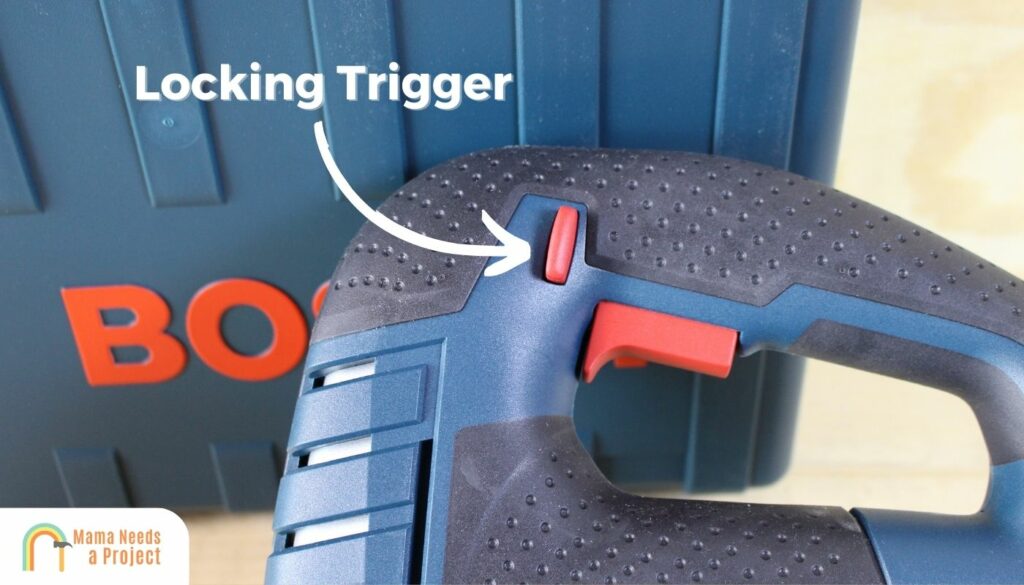
Another major difference, as we briefly touched on, is the trigger style and of these two jigsaws.
With the top-handle jigsaw, the trigger is directly above the blade, and you pull it with the same hand with which you’re gripping the jigsaw.
With a barrel grip jigsaw, however, you have an On/Off switch on the side of the grip that you use to activate and deactivate the motor. Therefore, there’s a slight delay if you need to turn off your saw quickly since you can’t simply release the trigger.
On the upside, however, barrel grip jigsaws feature a variable speed control switch, which makes up for the lack of a trigger.
Visibility
Next up, there’s a slight difference in the line of sight between a top handle and a barrel grip jigsaw.
Thanks to their lower profile, barrel grip jigsaws offer more visibility than top handle jigsaws, and it’s easier to see your cut line.
It’s also easier to see your blade when you’re using a barrel grip jigsaw, which adds to your control and visibility.
Heat Buildup
One of the biggest downsides of a barrel grip jigsaw is that you might struggle with heat buildup.
On barrel grip models, the motor housing is part of the handle, meaning that you’ll feel the motor’s heat whenever you’re using the jigsaw.
The fact that your hand is covering the motor housing also makes it harder for heat to escape, which could lead to excessive buildup, resulting in overheating. Top handle jigsaws, on the other hand, have their motor housing on the bottom of the saw, which means it’s out of the way of your hand.
What is a Barrel Grip Jigsaw?
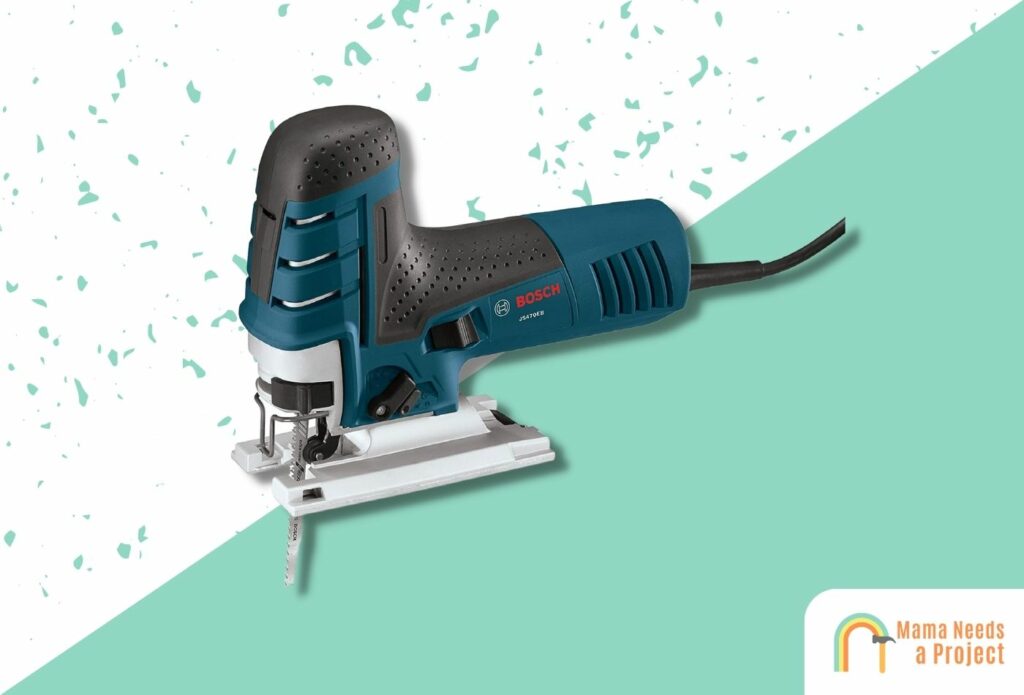
Barrel grip jigsaws are newer to the woodworking world than their top handle counterparts. Barrel grip jigsaws have a longer and more slender shape than top handles, which are more rectangular, boxy.
Barrel grip jigsaws look very similar to oscillating tools and saws, thanks to their mostly straight shape. However, the cutting mechanism is the same as with traditional jigsaws in that the blade is located on the bottom of the saw, and you’re cutting from a vertical position.
Pros and Cons of Using a Barrel Grip Jigsaw
Here’s a quick look at the pros and cons of using a barrel grip jigsaw.
Pros
- Easier to control and guide
- More control and visibility of the blade and cutting line
- Very comfortable in your hands
- Your hands are less likely to get fatigued as you’re working
Cons
- Prone to overheating
- Your hand will get hot if you use it too long
- Not great for people with small hands
What is a Top Handle Jigsaw?
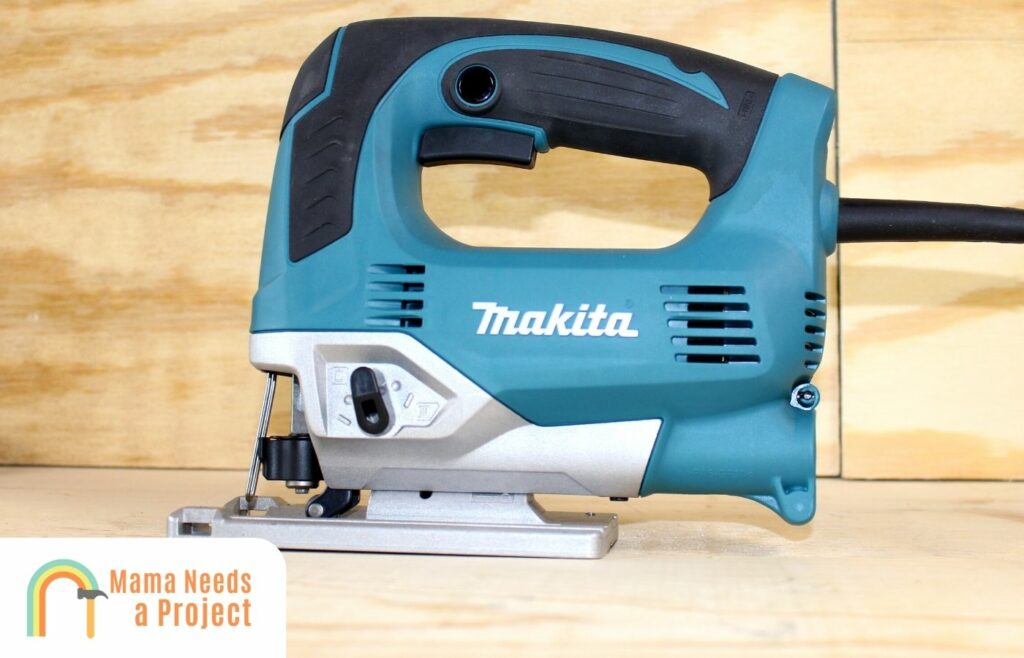
Top handle, also known as D-handle jigsaws are the most common type of jigsaw and used to be the only option available. Also known as D-grip jigsaws because of the shape of the handle, top handle jigsaws are easy and comfortable to handle. They are also designed to operate with a single hand.
Top handle jigsaws are very easy to operate because the grip fits comfortably in your hand. You can then easily operate the trigger switch with your pointer finger and manipulate the speed control dial if necessary.
If you’re inexperienced with jigsaws or have relatively small hands, top handle jigsaws are the way to go.
Pros and Cons of Using a Top Handle Jigsaw
Here’s a quick look at the pros and cons of using a D-handle jigsaw.
Pros
- Easier to hold and use with a single hand
- Not as prone to overheating
- More control over the trigger
Cons
- Less control
- Less visibility of the blade and cut line
- Can lead to hand fatigue
Which Type of Jigsaw Handle is Right For Me?
Now that you better understand the differences between a top handle and a barrel grip saw, let’s look at how to choose the right option.
Hand Size
If you have small hands, top-handle jigsaws are the better option. The grip on a top-handle jigsaw is slender and ergonomic, whereas most barrel grip jigsaws are fatter and will require both hands to control.
Comfort Level
Top-handle jigsaws are generally better for beginners who aren’t familiar with jigsaws. Barrel grips, on the other hand, are typically preferred by professionals and those with more experience.
Level of Precision Needed
Because barrel grip jigsaws offer more control and increased visibility, they are the preferred option if you need to make precise cuts.
Here’s a great video showing both tools in action!
FAQs
What is a barrel grip jigsaw good for?
Barrel grip jigsaws are good for woodworking tasks requiring accuracy, precision, and cuts with tight curves.
Are barrel grip jigsaws more powerful than top handles?
While barrel grip and D-handle jigsaws have different designs, they have the same amount of power.
Who makes the best barrel grip and top handle jigsaws?
If you want high-quality barrel grip and D-handle jigsaws, Dewalt, Milwaukee, and Bosch make some of the best.
Final Thoughts About Barrel Grip and Top Handle Jigsaws
Ultimately, which jigsaw you choose often comes down to personal preference. However, it’s still important to evaluate the strengths and weaknesses of either tool to see how they stack up against each other.
Additionally, while weighing the pros and cons of each tool is important, it’s even more important to handle and test them. After using both tools, there’s a good chance you’ll have a better feel for one over the other, which could be the only deciding factor you need.
Looking for a new jigsaw? Check out these guides:

